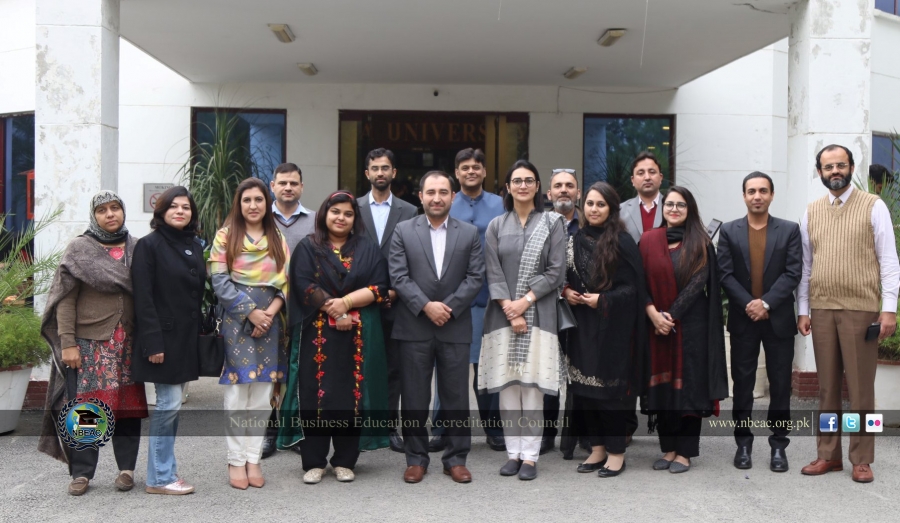Workshops
Workshop on "Developing and Teaching Courses"

Venue: IQRA University, Islamabad
|
Workshop - “Developing and Teaching Courses” |
|||
|
Workshop Description: |
|||
| The two-day workshop will cover all the important aspects of developing and teaching organizational behavior (OB) and human resource management (HRM) courses at undergraduate level. The workshop will start with a broad discussion on the strengths and limitations of the traditional teaching methods being used at undergraduate level. The participants will then share and discuss new and more effective pedagogies to teach these courses. A combination of peer learning and guidance by the trainers will help participants develop relevant contents and to make these courses interesting, engaging and learning oriented by the use of non-traditional approaches such as hands-on activities, industry samples, case studies, classroom debates, featured films, role playing, games and flipped classrooms. | |||
|
Workshop Objectives: |
|||
|
|||
|
Learning Outcomes: |
|||
|
The participants will develop an understanding of the followings by the end of this workshop:
|
|||
|
Who Should Attend: |
|||
|
This workshop is directed at faculty members who are teaching, or plan to teach, OB and HRM at undergraduate levels. |
|||
|
Facilitators: |
|||
|
Lead Facilitator: Dr. Sadia Nadeem Dr. Sadia Nadeem is the Dean Faculty of Management Sciences and Director Management Advancement Research Centre (MARC) at FAST School of Management, National University of Computer and Emerging Sciences, Islamabad, Pakistan. She began her professional career as an electronic engineer in Pakistan and then moved to London where she studied and worked for 13 years. She holds an MBA and a PhD in Management from Cass Business School, City University, London, UK. Dr. Nadeem has over 20 years of research, teaching and consulting experience in the field of HR and OB, and has more than 50 research outputs. She is a Chartered Member of CIPD, and an executive council member of National Business Education Accreditation Council. Co-Facilitator: Dr. Muhammad Abbas Dr. Muhammad Abbas is Associate Professor of Organizational Behavior and Deputy Director Management Advancement Research Centre (MARC) at FAST School of Management. Dr. Abbas has more than eleven years of teaching, research and administrative experience. He has worked in assisting public, private, and non-government organizations with their research projects and capacity building initiatives both nationally and internationally. He has received many national awards from Higher Education Commission, Pakistan for his outstanding research in the fields of organizational behavior. Dr. Abbas has published in world-renowned business journals such as Journal of Management, Journal of Business Ethics, and Journal of Business and Psychology. |
|||
|
Notes: |
|||
** If unforeseen circumstances occurs during the workshop and one day before the scheduled workshop, NBEAC will not refund the registration fee. |
|||
NBEAC successfully organized a workshop on “Developing and Teaching Courses: OB and HRM at Undergraduate Level” on 19th-20th November 2019 in Iqra University, Islamabad. The two-day workshop was designed to cover all the important aspects of developing and teaching organizational behavior (OB) and human resource management (HRM) courses at undergraduate level.
Detailed discussions and exercises were carried out regarding the issues and challenges faced by the faculty members. The main learning outcomes of the workshop were based on traditional pedagogies and their advantages and disadvantages in teaching, learning and assessment of OB and HRM courses; evaluation of the learning orientation of the Millennials and the appropriate methods to engage them in the classroom; designing or refining OB and HRM courses with locally relevant, interesting, skill-based and learning-orientated content; formulating and matching course learning outcomes with program learning outcomes; and lastly developing and applying effective pedagogies to teach these courses and successfully engaging the students to enhance their learning.
Day 1 of the workshop consisted of four main session in which detailed discussions were carried out regarding the workshop overview and introduction, content and topics to cover in OB and HRM, developing and matching PLOS/CLOS, indigenous perspective on OB and HRM and exercises on matching PLOS and CLOS and developing course content for OB and HRM.
Day 2 of the workshop consisted of four main session in which detailed discussions were carried out on traditional teaching pedagogies, learning styles of the Pakistani millennials, new teaching pedagogies and experiential learning; marks distribution and evaluation and exercise on updating the course outlines.
The consultants for this workshop were Dr. Sadia Nadeem (Dean, FAST School of Management, FAST-NU, Islamabad) and Dr. Muhammad Abbas (Associate Professor, FAST School of Management, FAST-NU, Islamabad). The workshop was attended by 15 participants representing different business schools all over Pakistan having a proper mix of public and private institutes.
Powered by iCagenda
About NBEAC
NBEAC has three main functions: accreditation, training and networking. In its accreditation function, it develops and implements standards to improve the quality of business education in Pakistan. In its training function, it provides opportunities to faculty and managers to learn about quality standards and related matters. In its networking function, it provides a forum for business education professionals to learn from each other through conferences and seminars.


